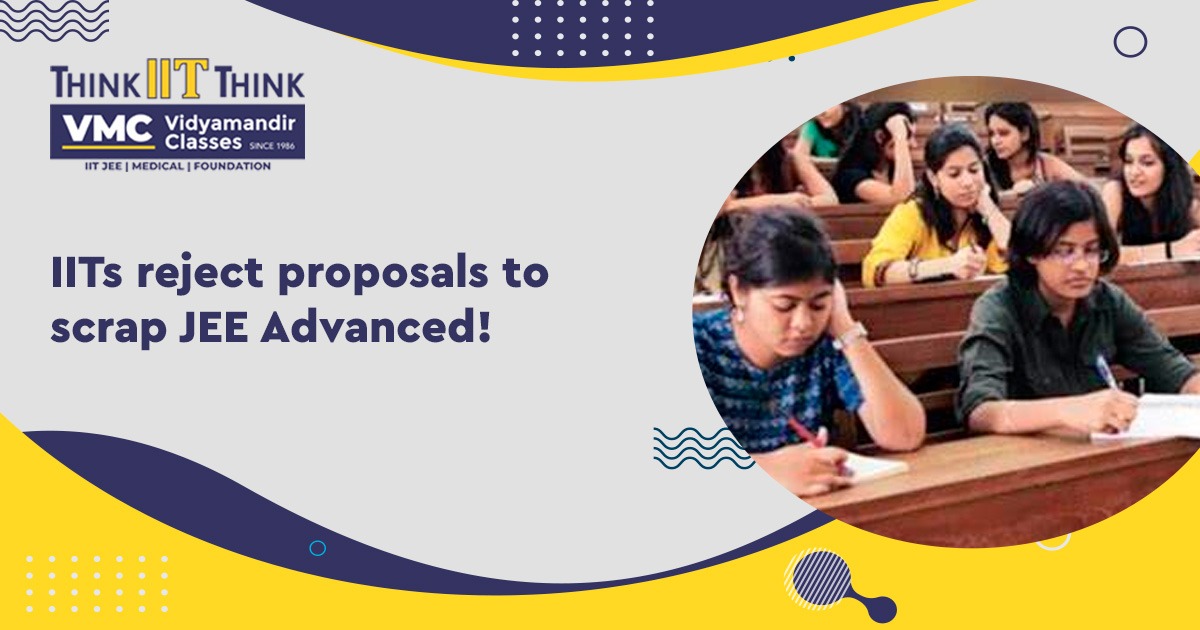IITs Stand Firm: JEE Advanced to Stay, Rejecting Proposal for Overhaul!
 Posted On
Posted On
258 total views, 1 views today
In a recent decision, the Indian Institutes of Technology (IITs) have chosen to maintain the status quo by continuing to offer their highly sought-after B.Tech programs and retaining the Joint Entrance Examination (JEE) Advanced as the gateway to IIT admissions. The unanimous rejection of a radical proposal, supported by the Human Resource Development (HRD) ministry, to overhaul the JEE and scrap JEE Advanced reflects the IITs’ commitment to preserving the credibility of this prestigious exam. This blog delves into the details of the proposal, the IIT Council’s decision, and the rationale behind their stance.
The Proposal for Reform:
The HRD ministry had lent its support to a proposal aimed at scrapping B.Tech courses at the IITs and transforming them into institutions that primarily focus on postgraduate education while mentoring select students from other engineering colleges. The proposal also called for the elimination of the JEE Advanced, with the intention of reducing reliance on coaching centers and altering the allocation system for selected students. However, all of these proposals were soundly rejected by the IIT Council.
The Council’s Stance:
Members of the IIT Council unanimously agreed that the current system should be allowed to continue functioning as it has been, believing that any changes would compromise the credibility of the esteemed examination. They emphasized the need to concentrate on improving the question pattern rather than pursuing radical alterations. Thus, the decision to retain the JEE Advanced and uphold the existing admission process was made.
Faculty and Alumni Support:
While the proposal had gained some support from faculty members and alumni, there were mixed reactions within the community. Some argued that focusing on research-based education and giving weightage to postgraduate programs was a positive step. However, there was concern that dismantling the flagship B.Tech courses at the IITs would necessitate the establishment of high-quality undergraduate institutes capable of filling the void. These concerns highlight the importance of creating comparable educational institutions before reducing undergraduate student intake.
Preserving the Undergraduate Tradition:
The IITs have long been renowned for their undergraduate programs and high placement rates, which also contribute significantly to their revenue through tuition fees. With this in mind, the IITs stressed that rather than scrapping the JEE Advanced, the focus should be on continuous improvements in question design to ensure the exam’s relevance and effectiveness.
The HRD Ministry’s Decision:
The IIT Council, led by HRD Minister Prakash Javadekar, had the final say in the matter. The ministry ultimately aligned itself with the IITs’ viewpoint, acknowledging that any need for reform should originate from within the institutions themselves.
Final Thoughts:
The decision by the IITs to reject the proposal for overhauling the JEE Advanced and scrapping B.Tech courses demonstrates their commitment to maintaining the integrity and credibility of their renowned examination. While there were differing opinions regarding the proposal, the IIT Council’s unanimous rejection underscores the importance of having well-established undergraduate institutes in place before making significant changes. As the IITs continue to evolve, they will focus on enhancing question patterns and further improving the JEE to ensure its continued effectiveness in evaluating aspiring students.
